"May the outbreak end and Wuhan return to normal as soon as possible," was Wang Ning's birthday wish on February 28.
As the head of a small team of 12 volunteers who help transport contaminated medical waste, Wang has been continuously working for 31 days in virus-hit Wuhan.
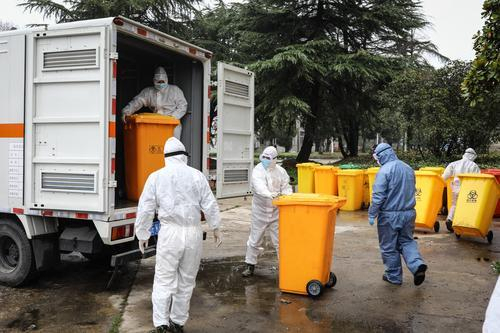
Volunteers transfer trash cans full of medical waste at a waste storage point in Wuhan, central China's Hubei Province. /China Youth Daily
Volunteers transfer trash cans full of medical waste at a waste storage point in Wuhan, central China's Hubei Province. /China Youth Daily
As part of daily protocol, Wang measured the team members' body temperature, checked their protective suits, and arranged the transportation route of each vehicle. He didn't get time to eat a bowl of "long-life noodles" until he received a birthday greeting video from his wife and daughter at night.
Wang Ning is a worker from Zhongyou Youyi EP Technology Co., a waste treatment company based in Hubei's Xiangyang City, 350 kilometers away from the capital Wuhan.
In response to local environment authority's request to accelerate the transfer of medical waste, he led a team of 11 drivers and helpers, five garbage trucks and brought 100,000 garbage bags to Wuhan in late January.
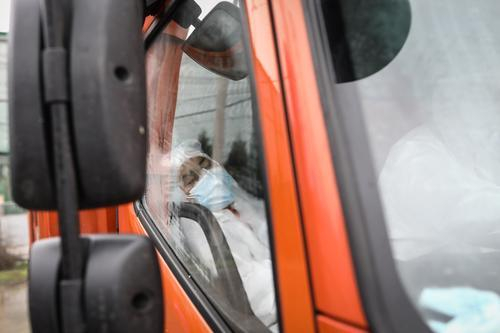
A volunteer falls asleep while transferring the medical waste to the incineration site in Wuhan, central China's Hubei Province. /China Youth Daily
A volunteer falls asleep while transferring the medical waste to the incineration site in Wuhan, central China's Hubei Province. /China Youth Daily
The amount of daily waste was increasing with more people being quarantined in Wuhan during early February. Their mission was to help transport tons of used face masks, biohazard suits, and bedclothes from hospitals to disposal sites for destruction.
According to China's Regulation on Medical Wastes Management, in case of flowing, leakage, and spreading of harmful microorganisms, the time of temporary storage of medical wastes within the medical and health institution should not exceed 48 hours.
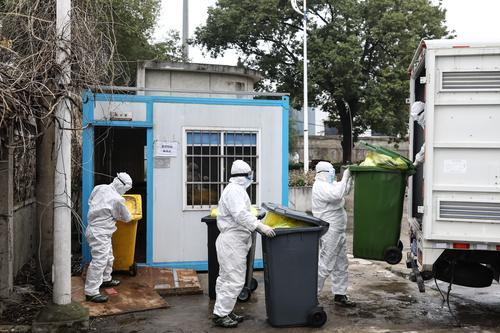
Volunteers move trash cans full of medical waste into a truck at a waste storage point in Wuhan, central China's Hubei Province. /China Youth Daily
Volunteers move trash cans full of medical waste into a truck at a waste storage point in Wuhan, central China's Hubei Province. /China Youth Daily
Wang and his colleagues had to deal with the piled-up waste around-the-clock, with extremely careful operations. "Each trash can is weighing over 30 kilograms. Two volunteers had to lift 18 waste bins to fill the truck at a time. Disinfect the waste before transferring it to the incineration site in the suburb," Wang told China Youth Daily.
"We were under great pressure when we first arrived here. We started working at 7 a.m. every morning and knocked off at midnight, but there were still stacks of medical waste waiting to be transported," Wang said.
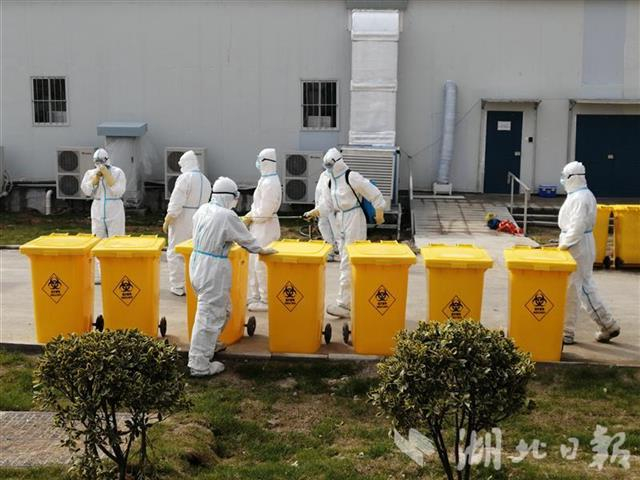
Volunteers disinfect the trash cans full of medical waste in Wuhan, central China's Hubei Province. /China Youth Daily
Volunteers disinfect the trash cans full of medical waste in Wuhan, central China's Hubei Province. /China Youth Daily
However, things are getting better as Wang's company has stationed more voluntary assistance to Wuhan. The transport team has expanded to 95 staff and 35 trucks, transferring more than 500 tons of medical wastes in February.
As of February 24, daily capacity for medical waste disposal in Hubei stood at 649 tons and Wuhan had quintupled its medical waste treatment capacity from 50 tons per day to 263 tons – 100 tons of which was made up of the household waste incinerators used to process "ordinary medical waste," according to the Ministry of Ecology and Environment.
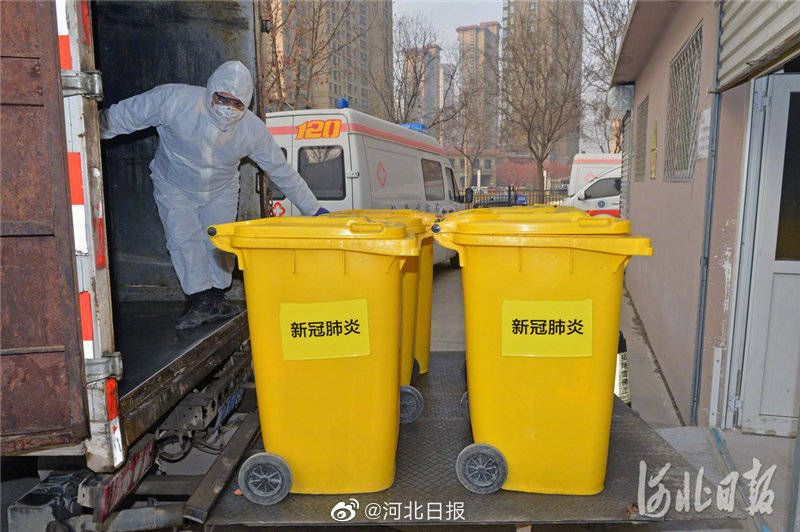
A worker moves trash cans full of medical waste into a truck in Shijiazhuang, north China's Hebei Province. /Hebei Daily
A worker moves trash cans full of medical waste into a truck in Shijiazhuang, north China's Hebei Province. /Hebei Daily
Regions outside Hubei have also promoted specific measures for medical waste disposal.
"We used to transport the medical waste five times a day. But now two trips are enough. Major hospitals have been capable of treating their daily garbage. It seems my birthday wish will be realized soon," Wang Ning said.